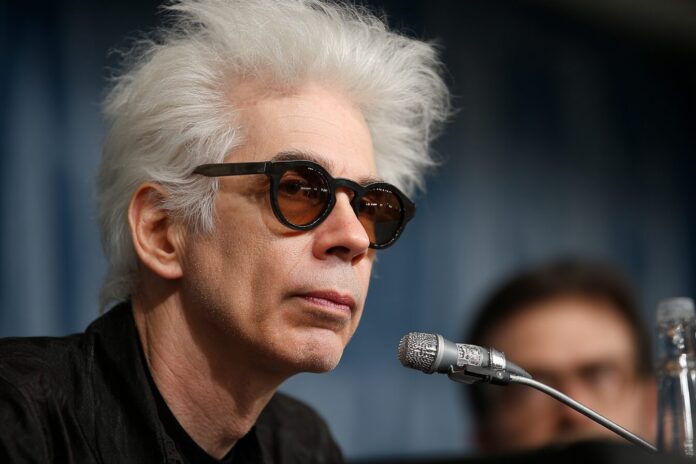The Indie Film Icon Speaks Out on Silicon Valley Influence in Cinema
Jim Jarmusch, the celebrated American independent filmmaker, has long been synonymous with artistic integrity and creative autonomy. Most importantly, his career is marked by a deep commitment to preserving the purity of independent cinema. At this year’s Venice Film Festival, he delivered an unexpectedly candid critique regarding Mubi, the arthouse streaming platform, which had co-produced his film Father Mother Sister Brother. Because of this notable collaboration, his criticism carries significant weight among filmmakers and cinephiles alike.
Besides that, Jarmusch’s comments come at a time when the intersection of art and lucrative corporate funding is under renewed scrutiny. His remarks underline the uneasy balance between creative freedom and commercial pressures, especially in an industry where ethical considerations are increasingly intertwined with financial decisions. Therefore, his stance resonates beyond the immediate controversy, serving as a clarion call to examine the broader implications of venture capital in film.
Why Mubi’s Sequoia Funding Matters to Filmmakers
The controversy centers on Mubi’s recent $100 million funding round led by Sequoia Capital, one of Silicon Valley’s most prominent investors. Most importantly, this funding round has raised critical ethical questions among independent filmmakers about the influence of venture capital on artistic endeavors. Because Sequoia has invested in controversial sectors, including ties to Israeli defense technology, a number of filmmakers view this as a potential compromise on the ethics of film funding.
Moreover, an open letter signed by several industry insiders has amplified these concerns by directly linking Mubi’s growth to questionable financial practices. Therefore, the ongoing debates reflect a broader struggle in the film community: balancing financial support with the integrity of independent art. Transitioning from creative ideals to the harsh reality of corporate involvement, many argue that even indirect associations can muddy the water of artistic purity.
Dissecting Sequoia’s Broader Influence in Tech and Film
Sequoia Capital has established itself as a dominant force in both the technology and investment landscapes. Most importantly, its far-reaching investments cover a spectrum from cutting-edge tech startups to defense-related ventures. Because of this diverse portfolio, Sequoia’s involvement with Mubi conjures ethical dilemmas that extend well beyond the movie theater. Technology news sources such as TechCrunch and Screen Daily have detailed Sequoia’s controversial financial moves and their impact on creative industries.
In addition, critics argue that the ties to defense tech, particularly with investments in firms like Kela, underscore a dangerous conflation of artistic values with corporate ambitions. Therefore, this controversy steadily forces an industry-wide dialogue on whether such funding sources can coexist with an uncompromised creative process. Transition words like “most importantly” underline the urgency with which filmmakers are rethinking traditional funding models.
Mubi’s Evolution and the Ethical Dilemma
Historically, Mubi has enjoyed a reputation for nurturing independent and international films, opening up new avenues for both filmmakers and audiences. However, the recent infusion of capital from Sequoia has triggered mixed reactions. Most importantly, this funding represents a double-edged sword: it offers substantial financial stability while simultaneously inviting scrutiny over ethical conflicts. Because of this, Mubi faces the challenge of reconciling its founding principles with the demands of corporate investment.
In response, Mubi’s CEO Efe Cakarel has reiterated the platform’s commitment to independent cinema, insisting that any implications linking their funding to controversial military operations are unfounded. Besides that, he clarified that the financial support is solely meant to bolster creative projects without compromising the artistic vision. Consequently, audiences and industry professionals are left to ponder the ramifications of such funding sources in a rapidly evolving digital landscape.
Jarmusch’s Unique Position: Independent Yet Embedded
Although his collaboration with Mubi predates the contentious funding round, Jarmusch’s candid criticism exposes the inherent tension between artistic integrity and financial necessity. Most importantly, his perspective emphasizes that while independent filmmakers often require external funding, the source of that funding should never undermine the core values of art. Because of this, his remarks have been provocative enough to spark thoughtful debate among creatives across the globe.
Furthermore, Jarmusch’s acknowledgment that “all corporate money is dirty” speaks volumes about his inner conflict and the broader challenges faced by the industry. Therefore, his stance is not simply an indictment of a specific deal but a broader commentary on the pressures modern filmmakers face. Transitioning towards a future of more transparent practices, his outlook encourages a reevaluation of funding ethics in the digital age.



